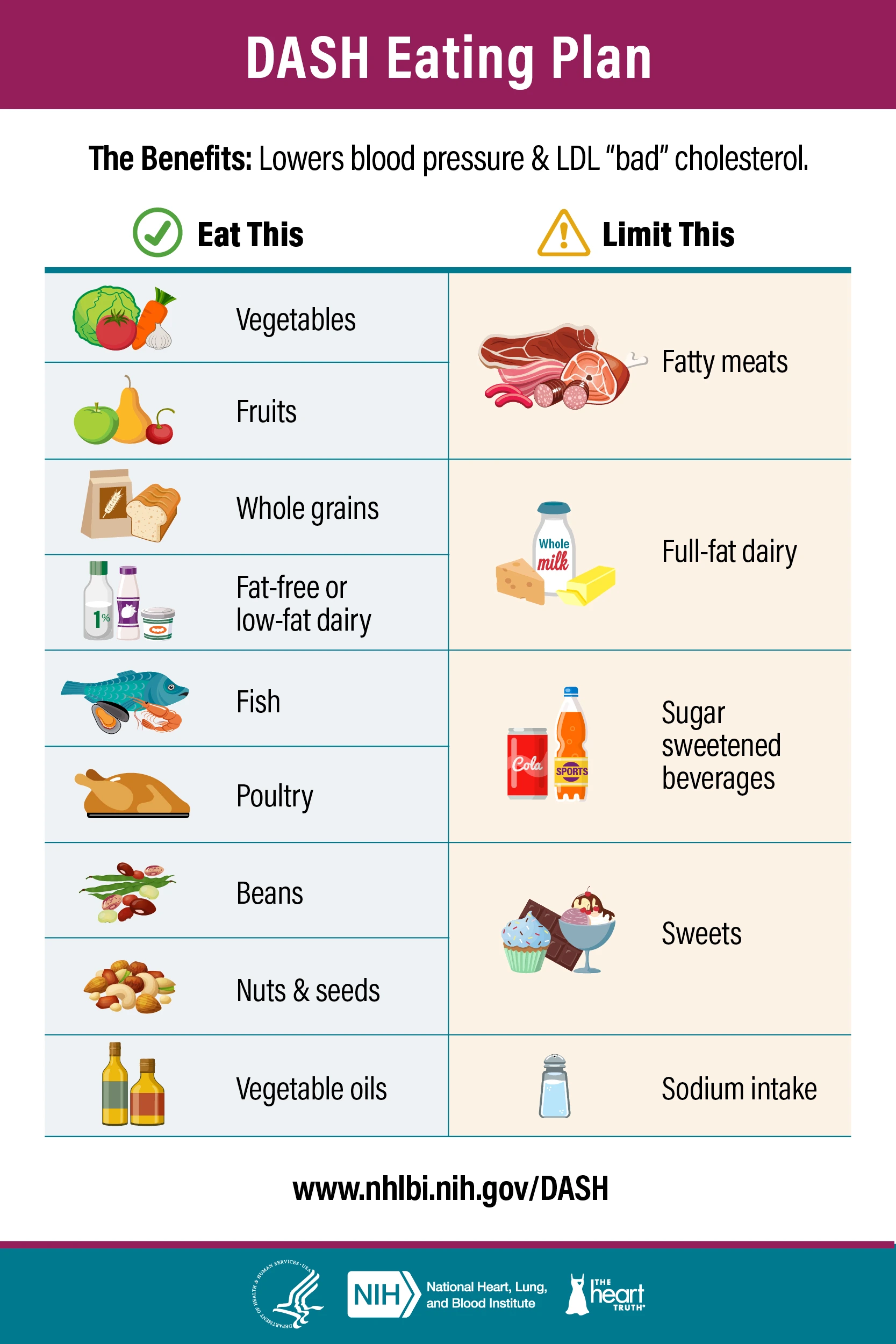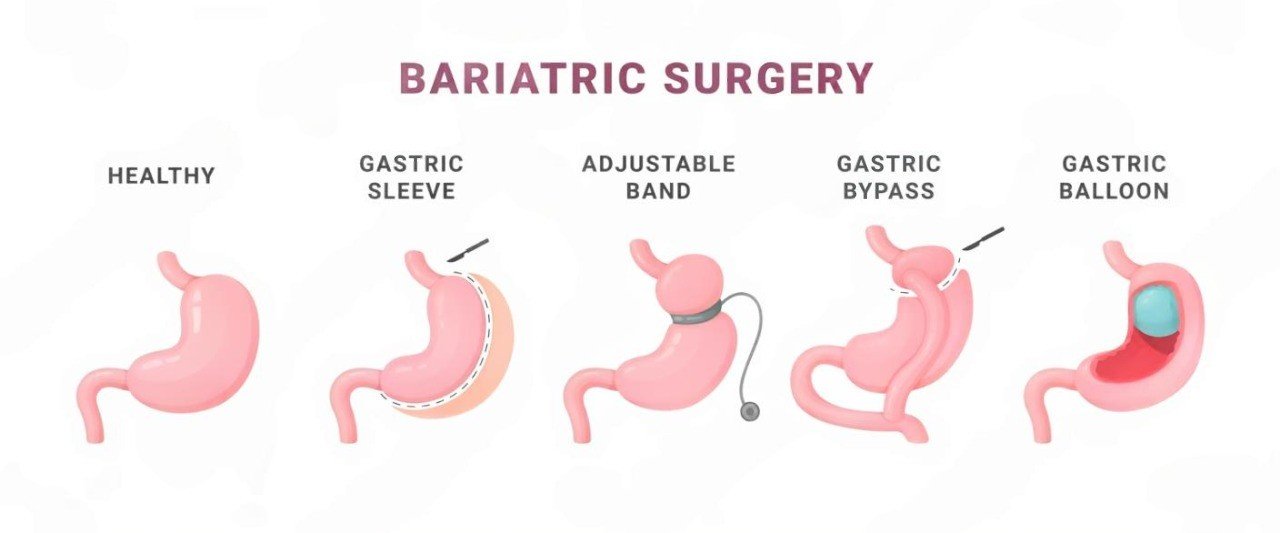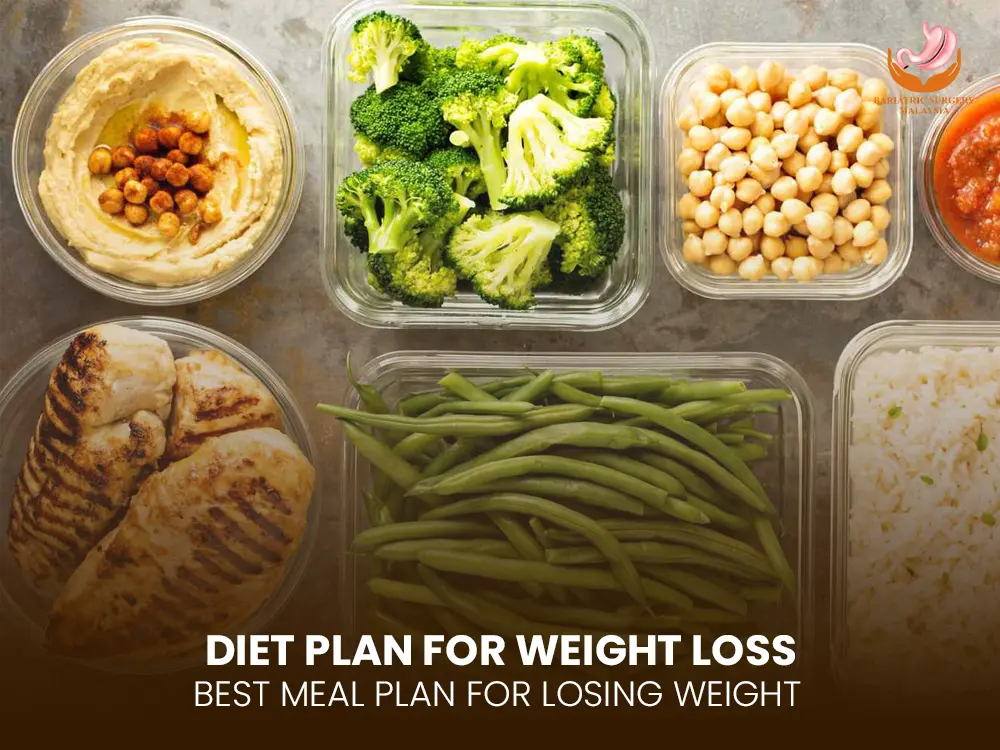Introduction: Why Diet Matters in Weight Loss
When it comes to weight loss, exercise helps—but what you eat makes the biggest difference. A diet plan for weight loss works by creating a calorie deficit (burning more calories than you consume), while still giving your body the nutrients it needs.
What is a Diet Plan for Weight Loss?

Credit to https://www.nhlbi.nih.gov/
A diet plan for weight loss is a structured eating guide that helps you:
Control calories without starving.
Improve metabolism and burn fat.
Include the right mix of protein, carbs, and fats.
Support long-term health instead of quick fixes.
Unlike fad diets, the best weight loss diet plan should be realistic, flexible, and sustainable.
The Science Behind a Weight Loss Diet
Weight loss happens when you consistently eat fewer calories than your body burns. Here’s how different nutrients play a role:
Protein: Supports muscle growth and satiety. Examples: eggs, chicken, fish, legumes.
Carbohydrates: Provide energy. Choose complex carbs like oats, brown rice, quinoa.
Healthy fats: Essential for hormones and fullness. Examples: nuts, avocado, olive oil.
Fiber: Improves digestion and controls appetite. Examples: vegetables, fruits, beans.
Balanced diet charts for weight loss often combine these nutrients in each meal.
Best Diet Plans for Weight Loss
Here are proven diet strategies supported by nutrition experts:
1. Low-Carb Diet Plan
Reduces refined carbs like bread, pasta, sugary snacks.
Focuses on vegetables, lean proteins, and healthy fats.
Great for reducing belly fat and improving insulin sensitivity.
2. High-Protein Diet Plan
30–40% of calories from protein.
Helps preserve muscle mass while losing fat.
Foods: chicken breast, Greek yogurt, fish, tofu, beans.
3. Intermittent Fasting Diet Plan
Eating within a specific time window (e.g., 16:8 method).
Allows flexibility without food restrictions.
Effective for both men and women with busy schedules.
4. Mediterranean Diet Plan
Emphasizes vegetables, fruits, fish, olive oil, nuts, whole grains.
Linked to lower cholesterol, better heart health, and steady weight loss.
5. Keto Diet Plan
Extremely low carbs, high fats, moderate protein.
Encourages body to burn fat for energy (ketosis).
Works well short-term but requires strict monitoring.
6. Vegan Diet Plan for Weight Loss
Excludes all animal products.
Focus on beans, lentils, tofu, whole grains, nuts, and vegetables.
Naturally high in fiber and low in calories.
Sample 7-Day Diet Plan for Weight Loss
Here’s a simple diet chart for weight loss you can adapt:
Day 1
Breakfast: Oatmeal with berries + almond butter
Lunch: Grilled chicken salad with olive oil dressing
Dinner: Baked salmon + quinoa + steamed broccoli
Day 2
Breakfast: Boiled eggs + avocado toast
Lunch: Lentil soup + side salad
Dinner: Stir-fried tofu with brown rice
Day 3
Breakfast: Greek yogurt with chia seeds and banana
Lunch: Grilled fish with sweet potato
Dinner: Chicken breast + spinach + olive oil
Day 4
Breakfast: Smoothie with spinach, protein powder, and almond milk
Lunch: Turkey wrap with hummus and vegetables
Dinner: Baked tofu + mixed greens
Day 5
Breakfast: Oats with nuts + apple slices
Lunch: Quinoa bowl with beans, veggies, avocado
Dinner: Grilled prawns with sautéed vegetables
Day 6
Breakfast: Scrambled eggs with tomatoes and mushrooms
Lunch: Chickpea curry + brown rice
Dinner: Grilled salmon + asparagus
Day 7
Breakfast: Smoothie bowl with flax seeds
Lunch: Chicken salad + boiled egg
Dinner: Tofu stir-fry with broccoli and sesame seeds
Tips for a Successful Weight Loss Diet Plan
Plan meals ahead (meal prep saves time).
Stay hydrated—water helps metabolism.
Practice portion control (use smaller plates).
Get enough sleep—poor sleep disrupts weight loss.
Stay active—exercise supports calorie deficit.
Foods to Eat and Avoid
✅ Eat More Of:
Lean proteins: chicken, fish, beans
Whole grains: oats, brown rice, quinoa
Fruits & vegetables
Healthy fats: nuts, olive oil, avocado
❌ Avoid or Limit:
Processed foods
Sugary drinks
Fried snacks
White bread & refined carbs
Who Should Follow a Weight Loss Diet Plan?
Overweight individuals aiming for fat loss
Men and women struggling with belly fat
Teenagers (with safe modifications)
Diabetic or hypertensive patients (with medical guidance)
Athletes optimizing body composition
Potential Risks & Precautions
While a diet plan for weight loss is generally safe, extreme or restrictive diets may cause:
Nutrient deficiencies
Low energy
Hormonal imbalances
👉 Always consult a certified nutritionist or doctor before starting.
Conclusion
A healthy diet plan for weight loss isn’t about starving—it’s about eating smart. By focusing on whole foods, balanced nutrients, and consistent habits, you can achieve long-term results without harming your health.
Remember, there’s no one-size-fits-all weight loss diet plan. The best plan is the one you can stick with, enjoy, and sustain.
FAQs About Diet Plan for Weight Loss
1. What is the best diet plan for weight loss?
The best diet plan is one that creates a calorie deficit while providing enough nutrients. Popular options include low-carb, Mediterranean, and diet IF intermittent fasting.
2. Can I lose weight without exercise by following a diet plan?
Yes, diet alone can help you lose weight since calorie intake matters most. But exercise speeds up fat loss and improves muscle tone.
3. Are keto and intermittent fasting safe long-term?
Both can be effective short-term, but may cause side effects if followed without guidance. It’s best to consult a professional for long-term use.
4. What foods should I avoid for weight loss?
Avoid refined carbs, fried snacks, sugary drinks, and processed foods. Stick to whole, nutrient-dense meals.
5. How fast can I lose weight with a diet plan?
A safe and sustainable goal is 0.5–1 kg per week. Rapid weight loss may lead to muscle loss or health issues.
Bariatric Surgery: An Option for Advanced Weight Loss

For some individuals, following a diet plan for weight loss and regular exercise may not be enough—especially if obesity is severe or linked with health conditions like diabetes, high blood pressure, or sleep apnea. In such cases, bariatric surgery can be a safe and effective medical solution.



